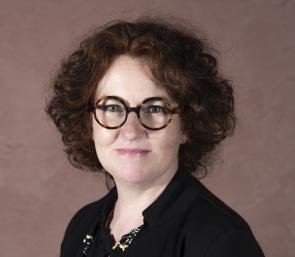
Musical training and sight-reading (singers)
INFORMATIONS
-
Objectives and content
To enable students to work alone on a tonal or atonal score from the solo repertoire,
ensemble or choral repertoire, by acquiring in-depth knowledge of the musical training of singers and practising sight-reading. -
Programme
<p>Training is based on the vocal repertoire, particularly that studied in singing class, in all styles. It includes<br>- ear training (intervals, chords) ;<br>- in-depth study of rhythm, including elements specific to contemporary music<br>contemporary music ;<br>- sight-reading (one or more voices) of songs, Lieder, oratorios, opera extracts, etc. in the original languages;<br>- individual preparation of works presenting specific difficulties;<br>- basic harmonic theory and concepts.</p>
-
Entrance terms and conditions
compulsory complementary discipine for 1st cycle singers only
-
Assessment terms and conditions
During the first month of school, the teacher assigns the student to a level group (level 1, 2 or 3, with a duration of study of 3, 2 or 1 year respectively).
Students who wish to do so may be exempted by a level examination for the certificate.
At the middle and end of each year (examination no. 1 and examination no. 2), students sit an examination corresponding to the level to which they have been assigned. The sum of the results obtained in these two examinations results in a grade (TB, B or AB).
Level 1
1) Test 1 (20-minute practice session) comprises (coeff. 1) :
- reading of two simple rhythms (one binary, one ternary) ;
- a simple vocalise ;
- reading notes in the 2 mixed clefs ;
- recognising intervals and singing their inversion.
2) Test 2 (30-minute practice session) includes (coeff. 2):
- reading a simple rhythm ;
- a rhythmic prosody in French ;
- reading of a simple antique Italian aria and analysis of its tonalities and cadences;
- recognise intervals (after singing them) and 3-tone chords in their fundamental state and sing their inversions;
- memorise a short simple musical fragment ;
- translate Italian musical terms.
Level 2
1) Test 1 (30-minute practice session) includes (coeff. 1):
- reading a rhythm of moderate difficulty ;
- a rhythmic prosody in French ;
- a vocalise of moderate difficulty;
- recognition of 3-tone chords and their inversions;
- translation of Italian musical terms.
2) Test 2 (45-minute practice session) includes (coeff. 2):
- reading a rhythm of medium difficulty, including one or more bar changes ;
- reading of a 19th century French melody ;
- reading a story and a classical Italian aria and analysing its tonalities, modulations and cadences;
- recognising 3-tone chords and their inversions and 4-tone chords in their fundamental state and singing their inversions;
- translation of Italian and German musical terms.
FINAL EXAMINATION
The final examination (level 3), which leads to the award of the certificate (grade TB, B or AB), consists of a mid-year test (no. 1) and an end-of-year test (no. 2).
1) Test 1 (30-minute practice session) includes (coeff. 1) :
- reading of a difficult rhythm with equivalences ;
- a short atonal vocalise ;
- reading of an Italian recitative and its harmonic analysis ;
- recognising 4-tone chords in their fundamental state and singing their inversions
inversions ;
- translation of Italian and German musical terms.
2) Test 2 (60-minute dressing room) includes (coeff. 2):
- spoken reading of difficult rhythms including equivalents ;
- reading of an excerpt from a lyric work in French or Italian ;
- reading of an atonal vocalise without the names of the notes ;
- reading a recitative and a classical aria in Italian or French;
- analysing the keys, modulations, chord numbers and cadences in the recitative or classical aria.
- reading a Lied (German Romantic) ;
- recognition of 4-tone chords and their inversions, and construction of 4-tone chords in their fundamental state on a given sound;
In its deliberations, the jury will take account of the candidate's academic record. -
Duration of studies
From one to three years at a rate of (approximately and depending on the number of students) :
- 1h30 group lesson per week
- 1 hour of individual tuition per week
- approximately 45 minutes of lessons with the assistant per week -
Reward
Certificate
-
Erasmus
Yes



